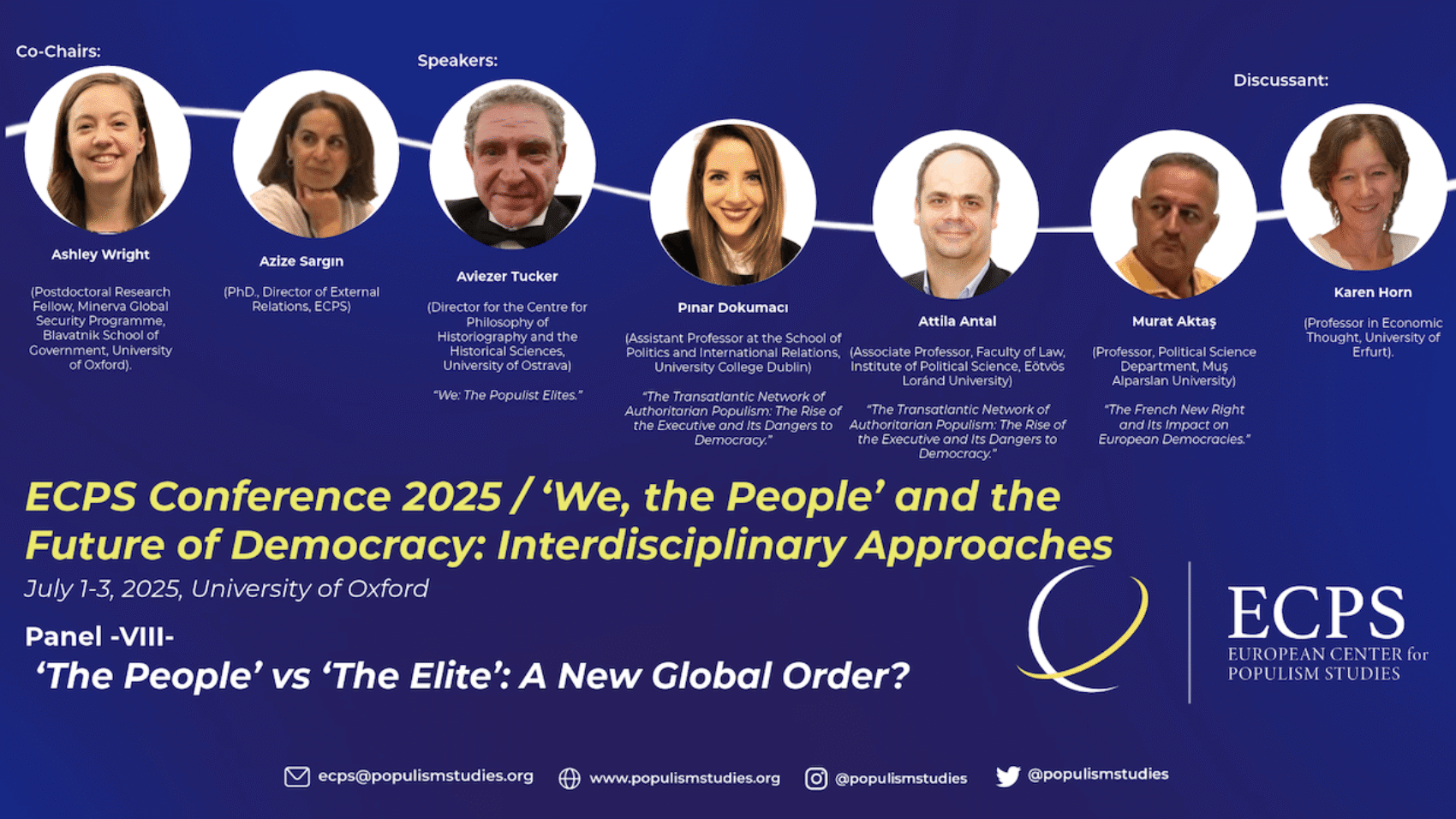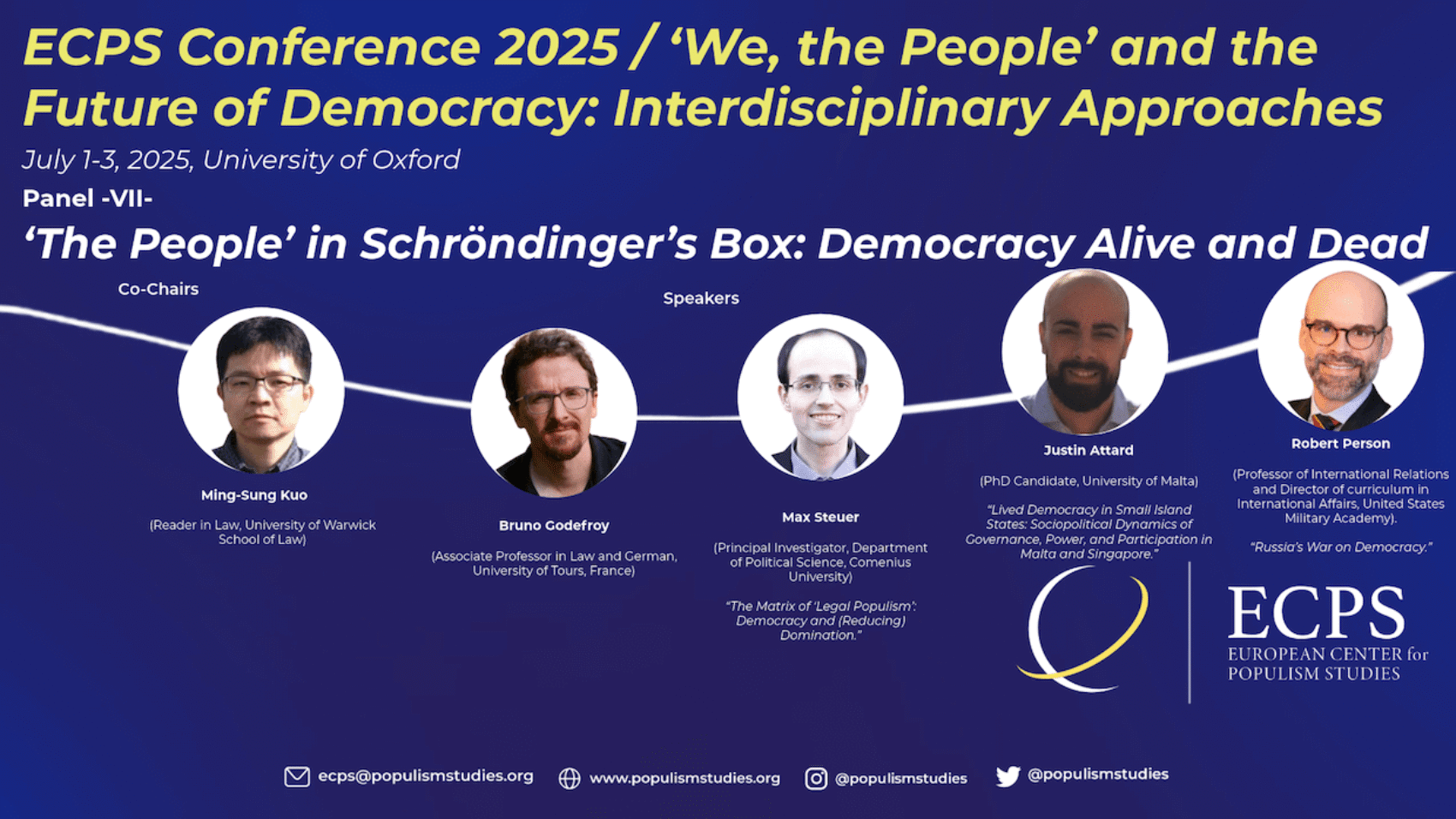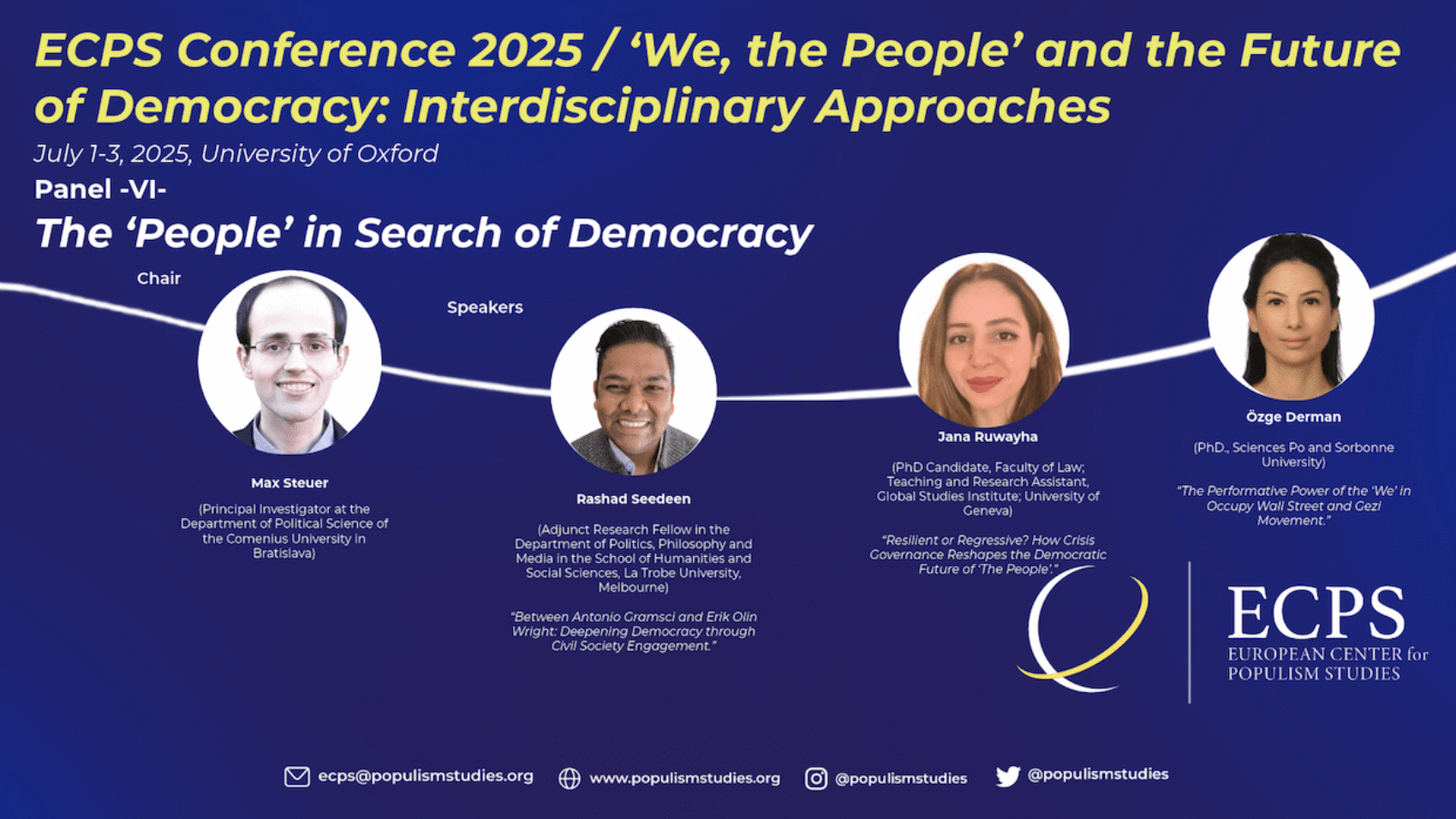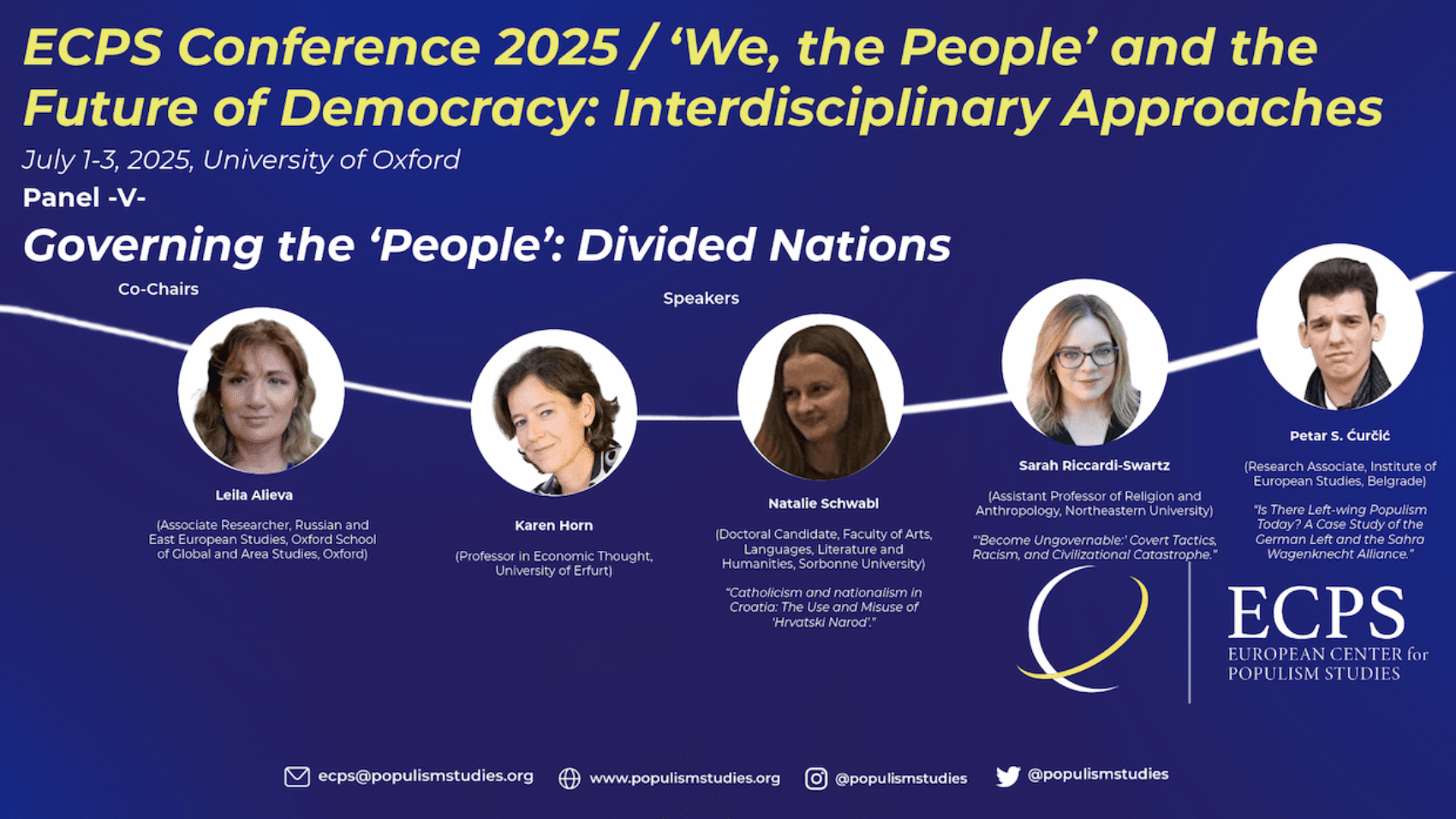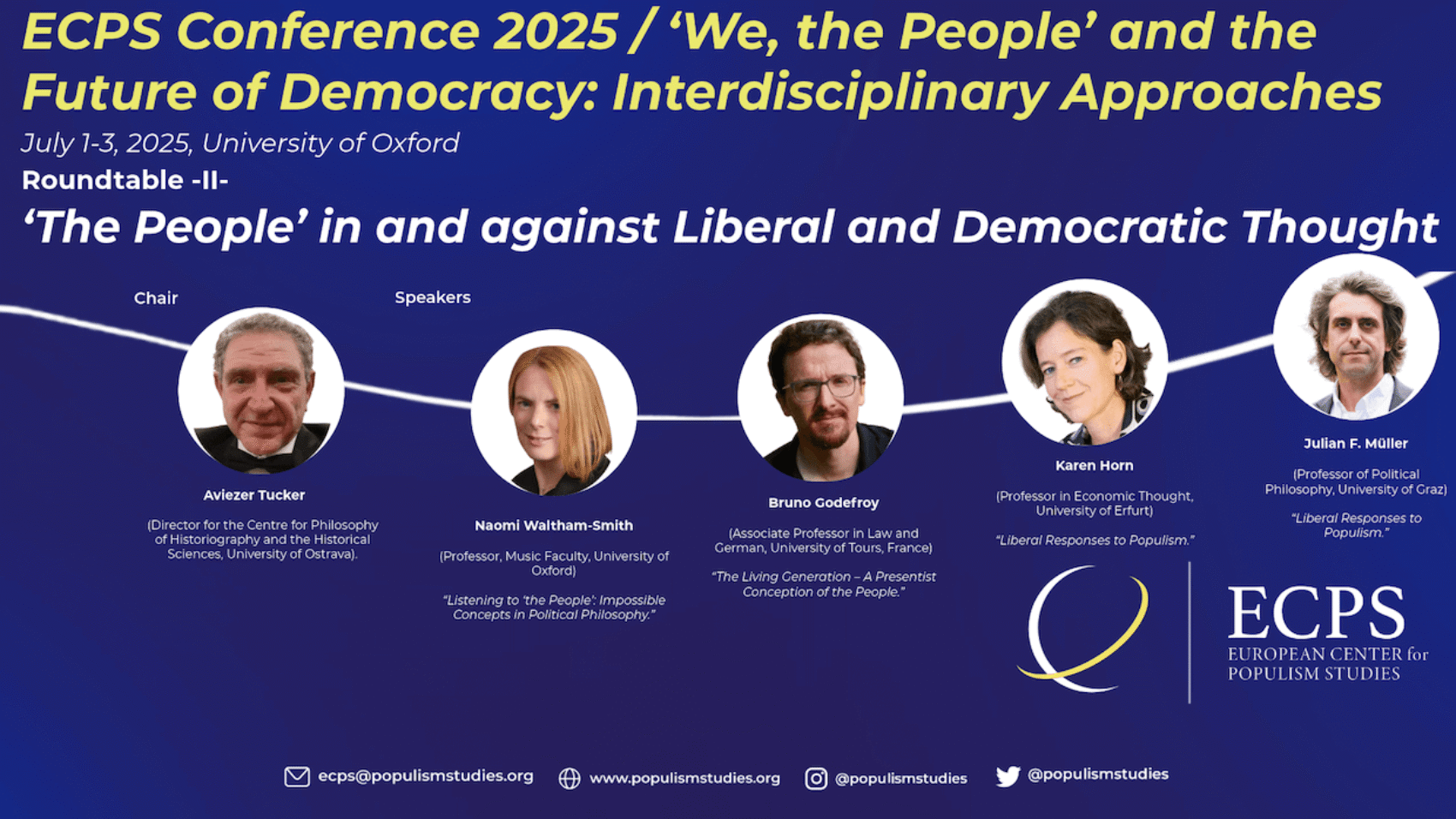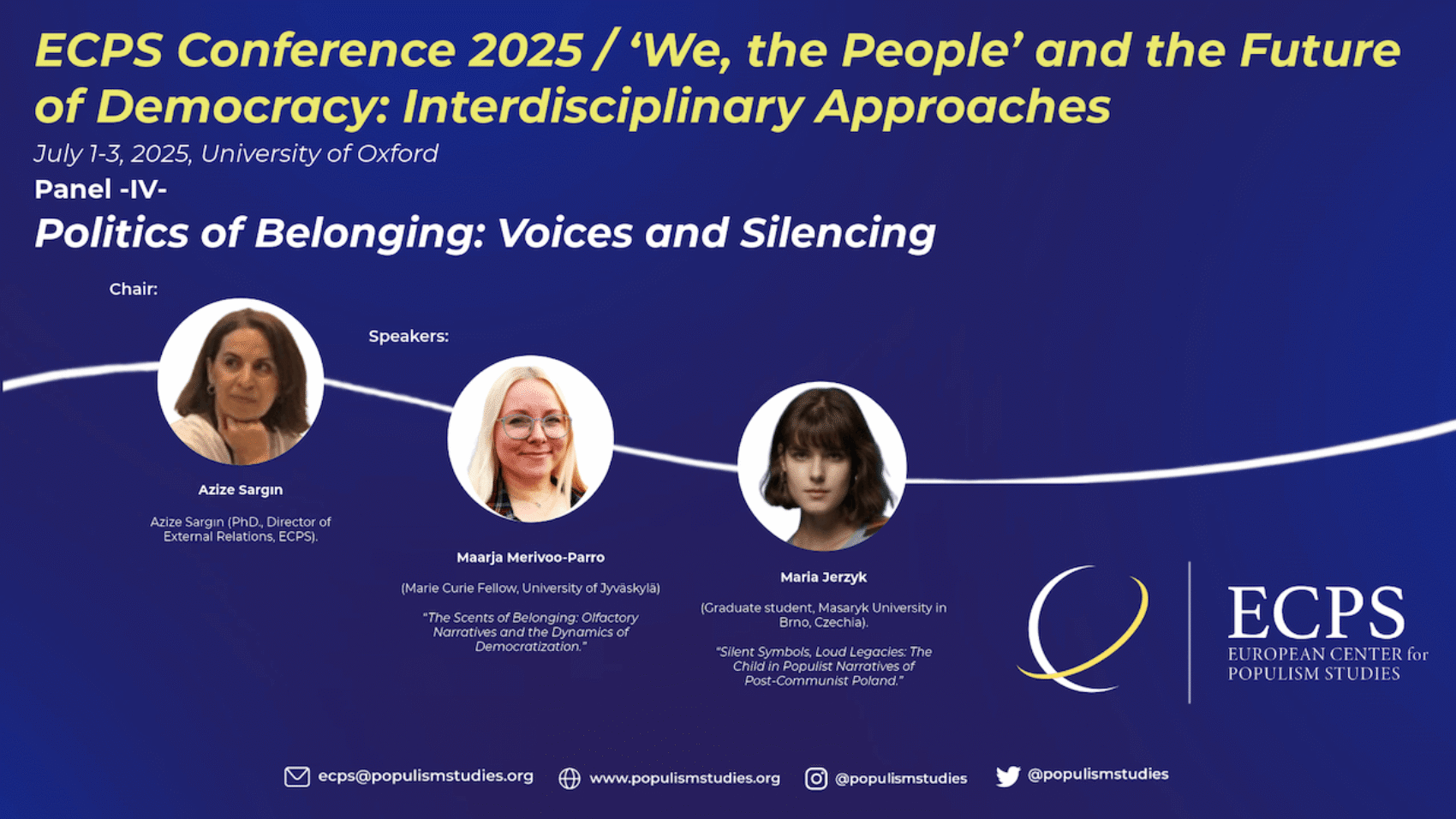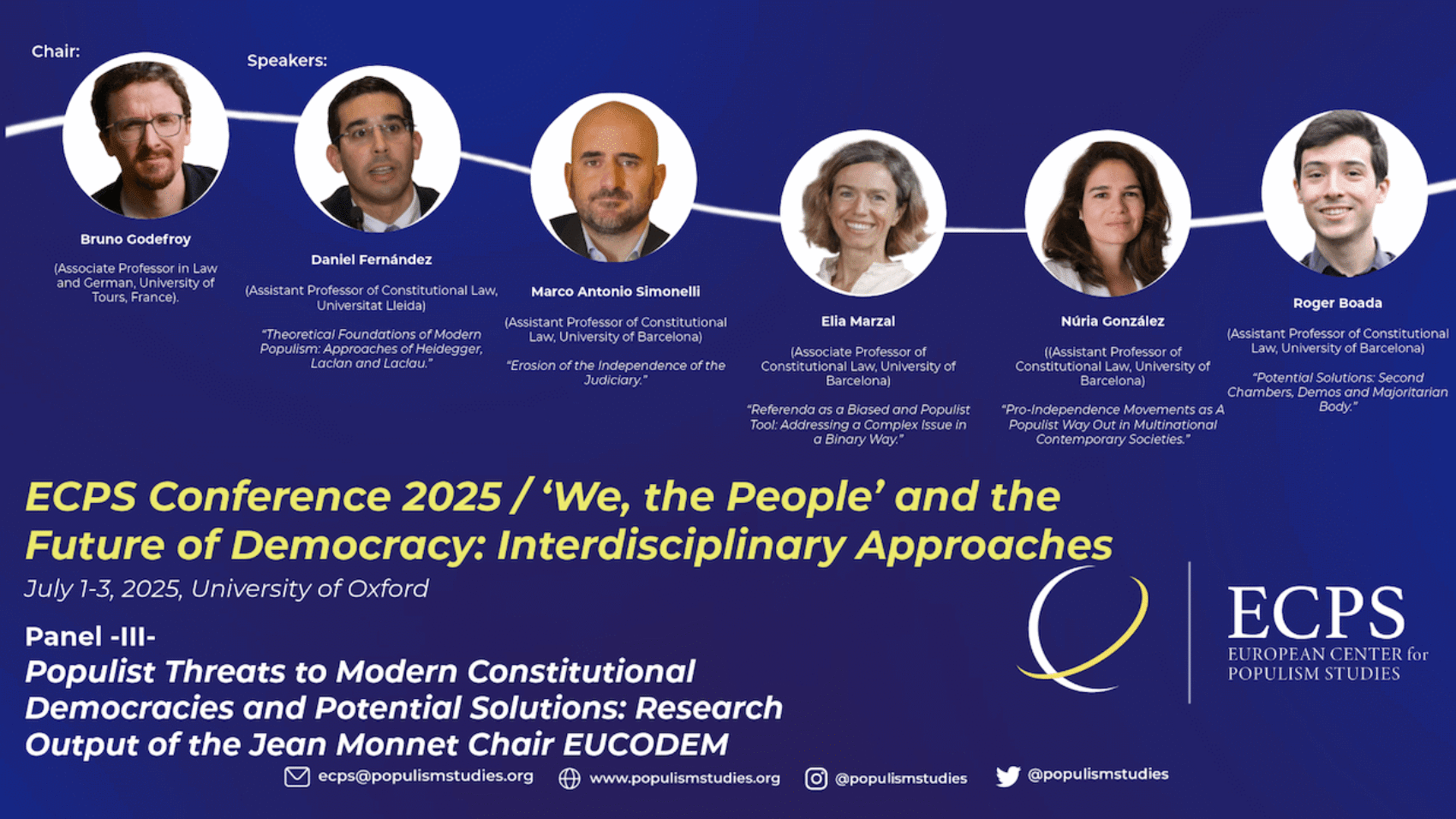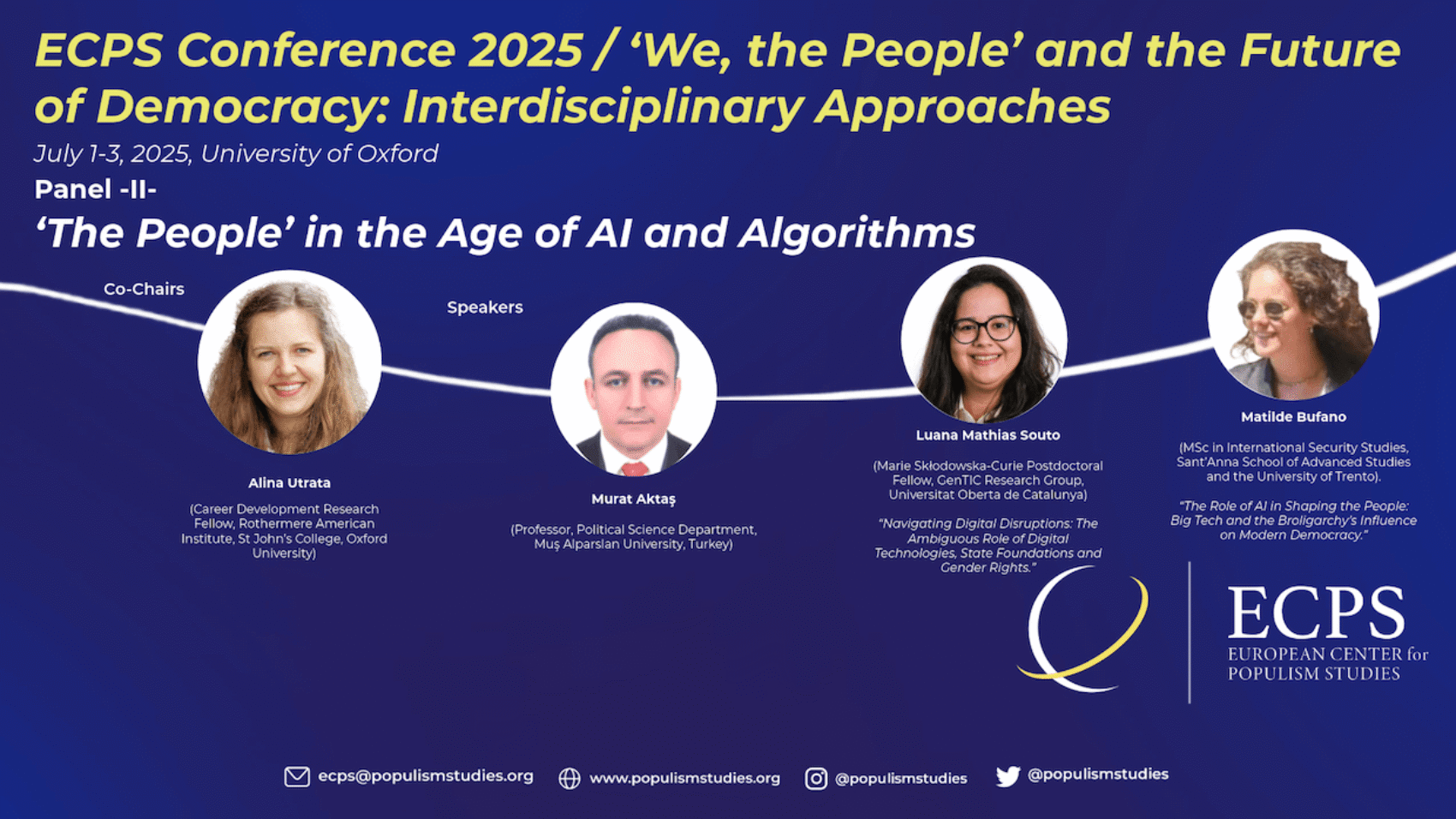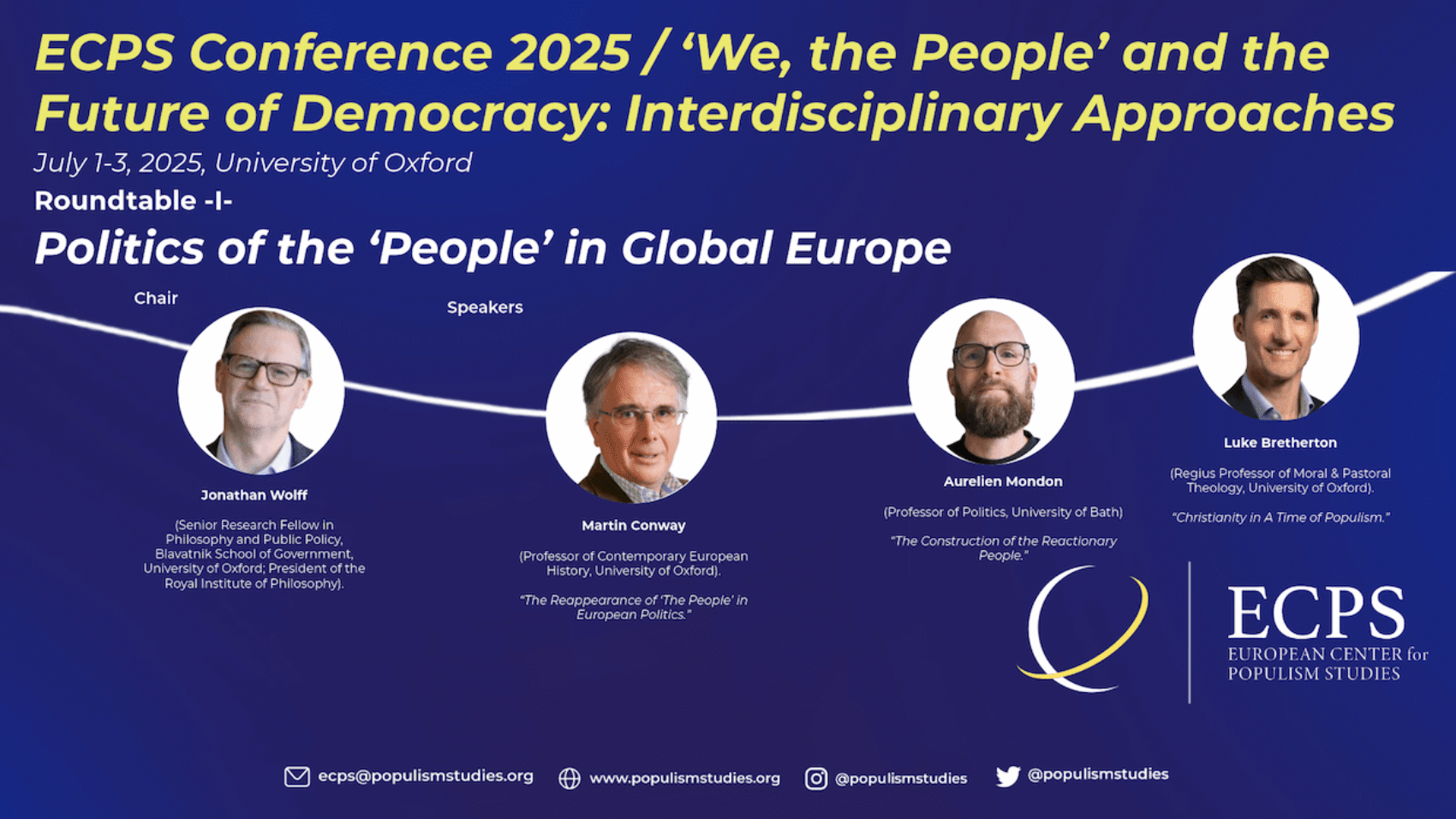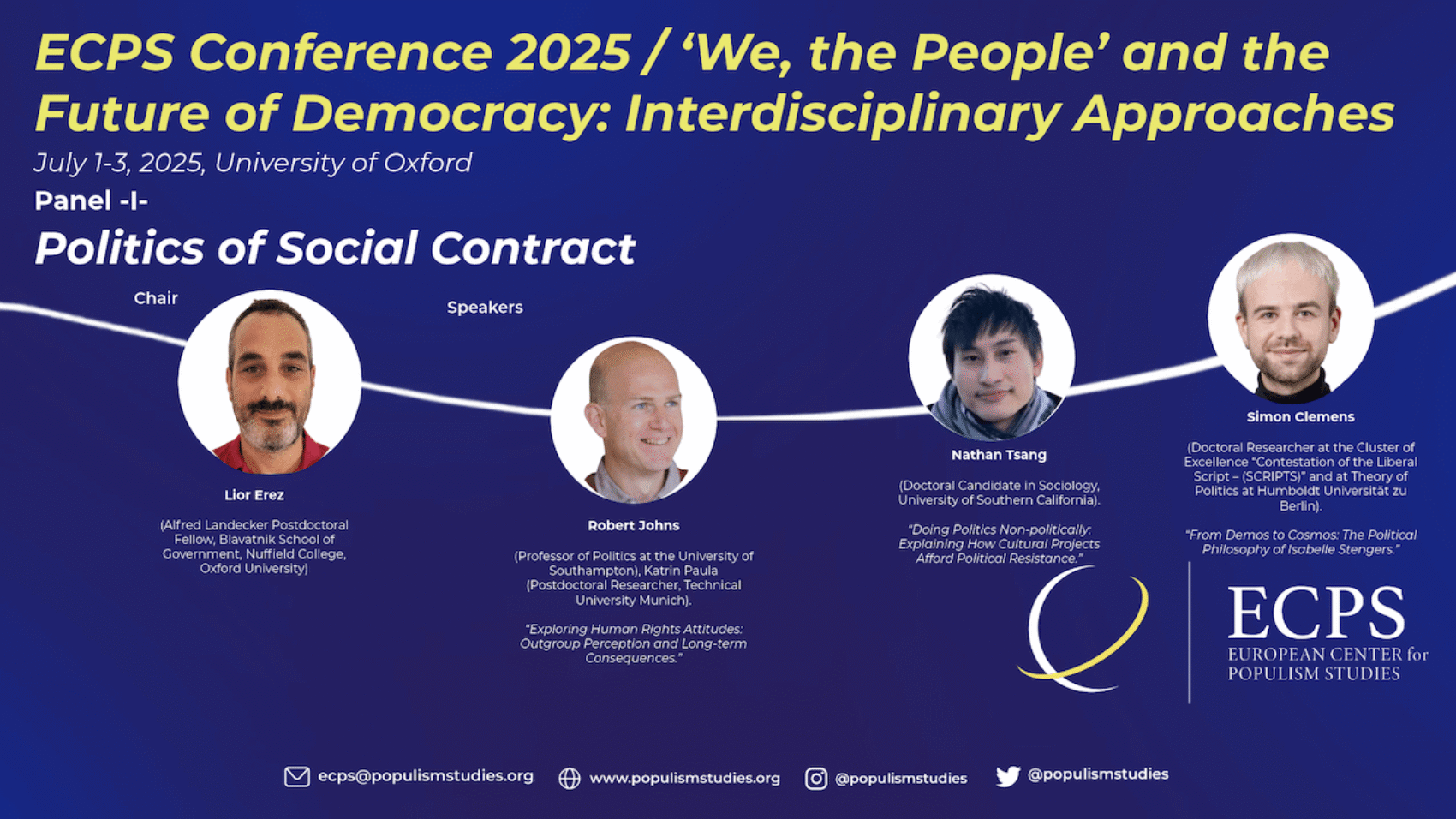At the 2025 ECPS Conference in Oxford, Panel 8 offered a rich exploration of populism, elite transformation, and democratic erosion. Co-chaired by Ashley Wright (Oxford) and Azize Sargın (ECPS), the session featured cutting-edge scholarship from Aviezer Tucker, Pınar Dokumacı, Attila Antal, and Murat Aktaş. Presentations spanned elite populism, feminist spatial resistance, transatlantic authoritarianism, and the metapolitics of the French New Right. Discussant Karen Horn (University of Erfurt) offered incisive critiques on intellectual transmission, rationalism, and democratic thresholds. Together, the panel underscored populism’s global diffusion and its capacity to reshape both elites and “the people,” demanding renewed theoretical and civic engagement. Democracy, the panel emphasized, remains a contested space—never static, always in motion.
Reported by ECPS Staff
As part of the ECPS International Conference 2025, titled “We, the People” and the Future of Democracy: Interdisciplinary Approaches, held from July 1–3 at St Cross College, University of Oxford, Panel VIII explored the contentious and evolving dynamic between “the people” and “the elite” in global political discourse. The session, titled “The People” vs “The Elite”: A New Global Order?, investigated the ideological and institutional transformations underway as populist movements reframe public authority, challenge established elites, and redefine democratic legitimacy across diverse national contexts.
This panel was co-chaired by Dr. Ashley Wright, Postdoctoral Research Fellow at the Minerva Global Security Programme, Blavatnik School of Government, University of Oxford, and Dr. Azize Sargın, Director of External Relations at ECPS. Their combined academic and practical expertise provided critical framing and continuity across the session.
The panel featured four intellectually rich presentations. Dr. Aviezer Tucker, Director of the Centre for Philosophy of Historiography and the Historical Sciences (University of Ostrava), opened with “We: The Populist Elites,” offering a provocative take on how contemporary populist leaders paradoxically assume elite roles while railing against elitism. Next, Dr. Pınar Dokumacı (University College Dublin) presented “Reclamations of ‘We, the People’,” reframing civil society in Turkey as a relational and spatial practice of democratic resistance under authoritarian populism.
In a transatlantic frame, Dr. Attila Antal (Eötvös Loránd University) delivered “The Transatlantic Network of Authoritarian Populism,” tracing how Schmittian legal theory and the rise of executive authority underpin political convergence between Trumpism and Orbánism. Closing the session, Professor Murat Aktaş (Muş Alparslan University) introduced their ongoing research in “The French New Right and Its Impact on European Democracies,” unpacking the metapolitical strategies and ideological currents that have shaped the European far-right.
The panel concluded with incisive commentary from Professor Karen Horn (University of Erfurt), who offered thoughtful critiques of transmission mechanisms, intellectual genealogies, and the limits of rationalist paradigms in explaining populist ascendancy.
Together, the session demonstrated how populism‘s global diffusion and elite contestation demand renewed theoretical and practical engagement with the future of democratic governance.

